Featured Resource
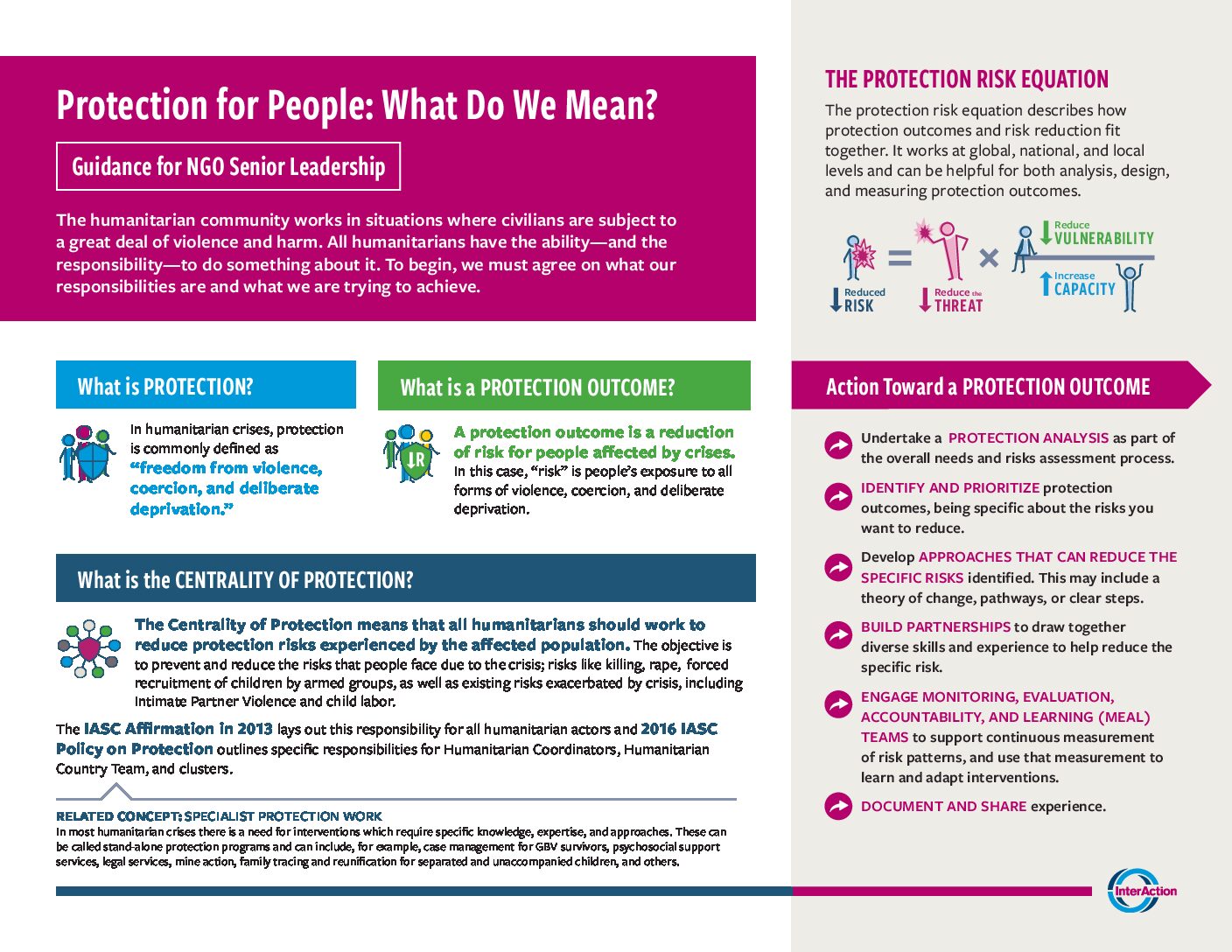 Protection for People: What Do We Mean? Guidance for Senior Leadership
Protection for People: What Do We Mean? Guidance for Senior Leadership
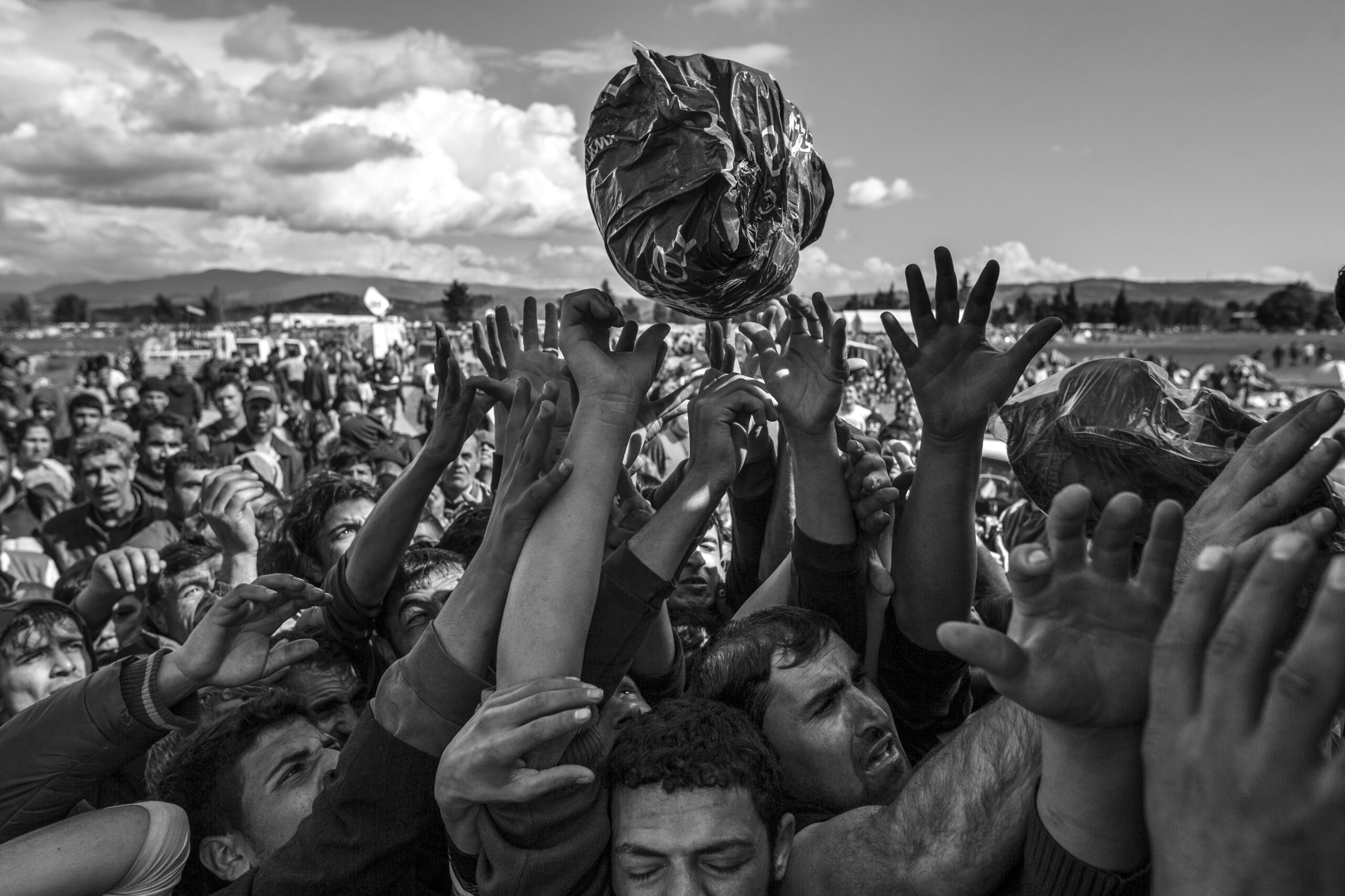
InterAction has published and collected resources including tools, reports, project evaluations, blogposts, and others from Members and partners that promote results-based approaches to protection since 2012; all of which can be found in this resource library. To explore practical case examples of RBP in practice, visit the case example page. Background photo By: Simon Moricz Sabjan is licensed under the CC BY-NC 4.0 license.

On 18 February 2014, the Humanitarian Practice Network (HPN) held an event to examine the challenges associated with prevention and response programming, the different forms of violence facing women and girls and the ways in which the needs of survivors can be better addressed in humanitarian crises.
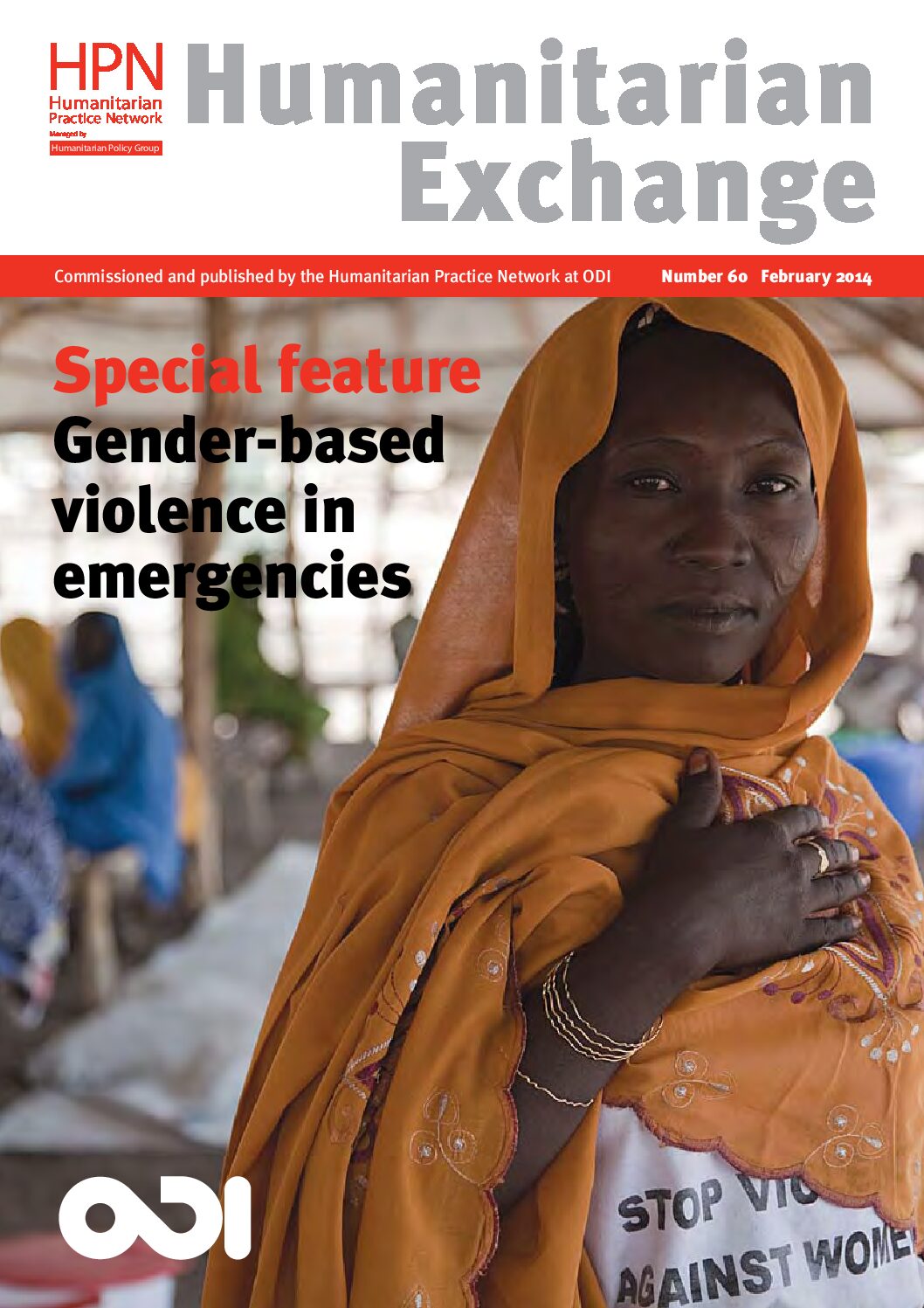
This paper reviews the quality of evidence available today to support humanitarian action. It focuses primarily on evidence generated by the ‘formal international humanitarian system’ through early warning, needs assessment, monitoring and feedback, evaluation, and impact assessment. It also considers the degree to which actors in the humanitarian system actually use evidence to guide their operational decisions and policy formulation
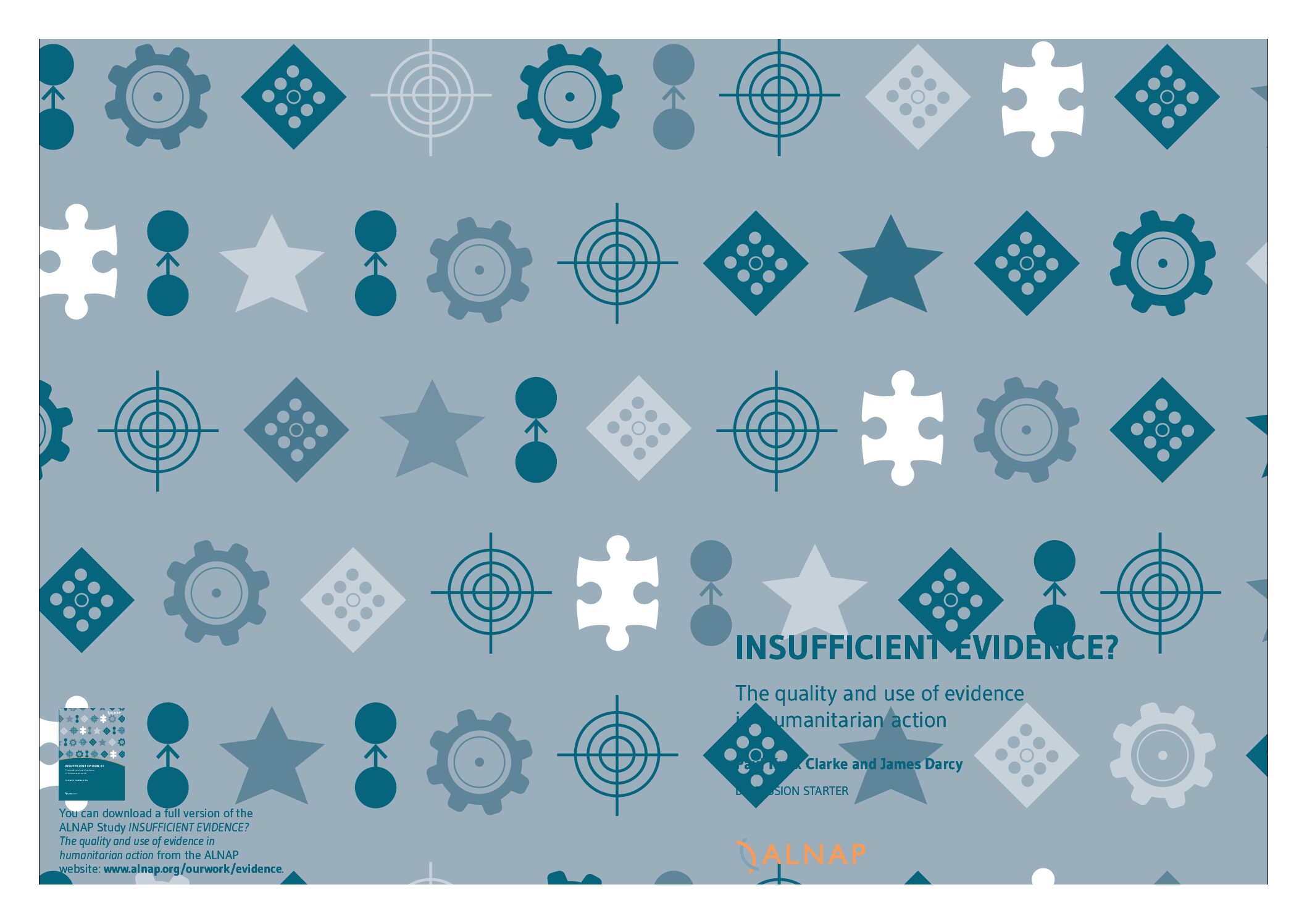
To better understand the lack of accountability within the humanitarian system, the Humanitarian Policy Group (HPG) at the Overseas Development Institute (ODI) published a report titled ‘Collective Approaches to Communication and Community Engagement: Models, Challenges and Ways forward.’
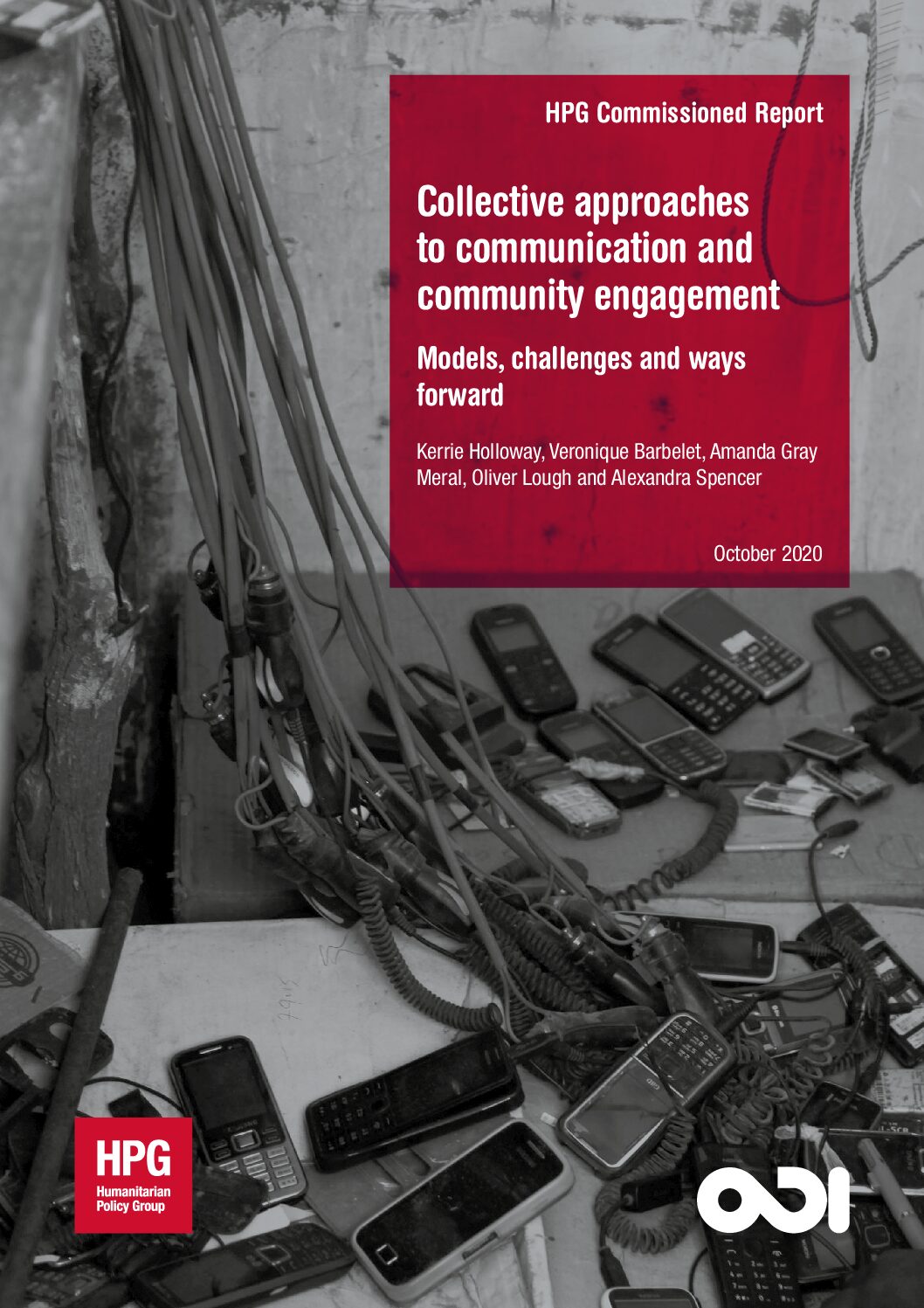
Led by Lisa Attygalle, the Tamarack institute released a publication that looked at the discrepancy in ‘community-led verbiage’ to ensure that communities are not inadvertently acted-upon but rather empowered through leadership.
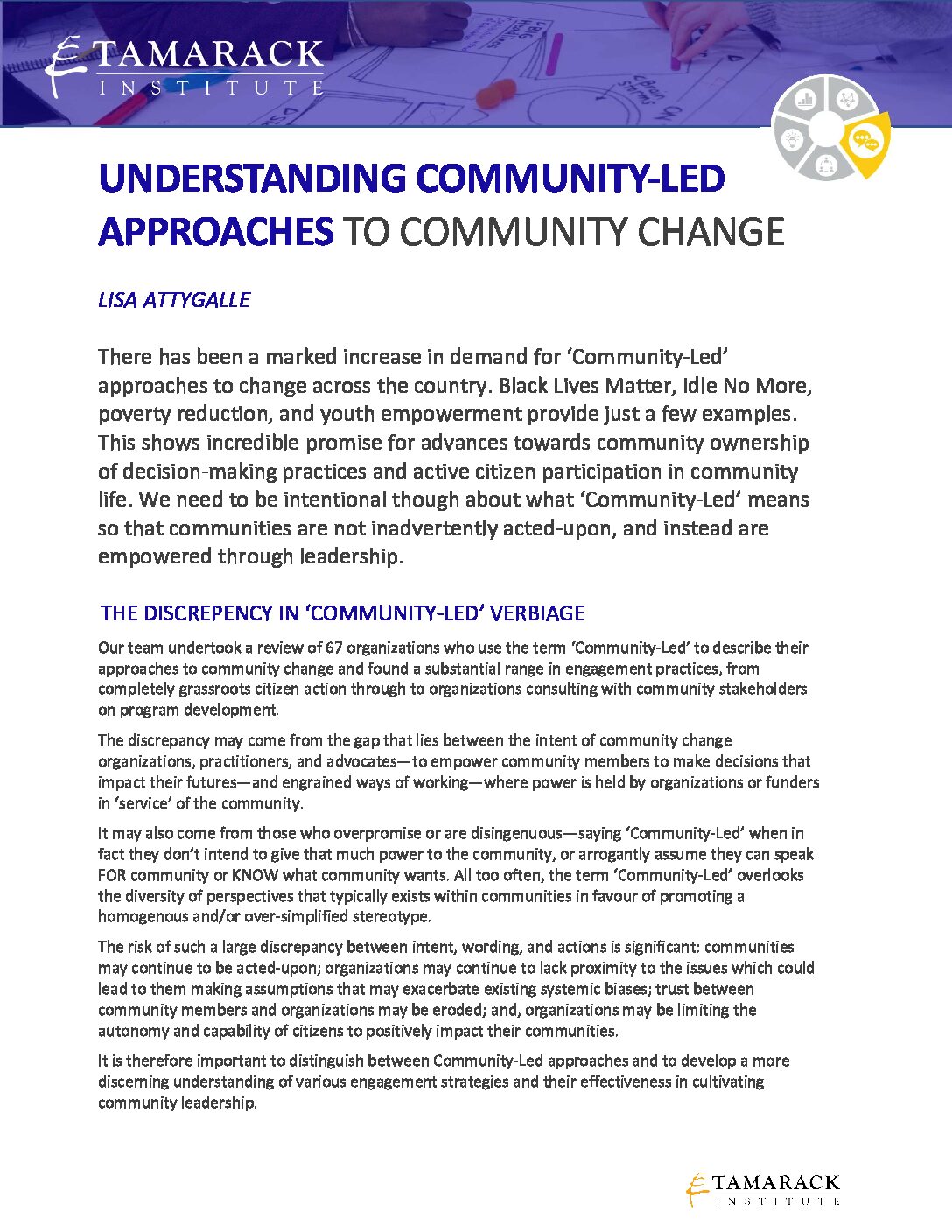
Following its webinar last year on Adaptability and Flexibility within the humanitarian system, ALNAP released a report titled Shifting Mindsets: Creating a More Flexible Humanitarian Response. The report, broken into five sections, attempts to address the struggle that humanitarian agencies have grappled with when it comes to adapting context, changing the type and quantity of support at the right time, or responding quickly and appropriately to unexpected crises or challenges.
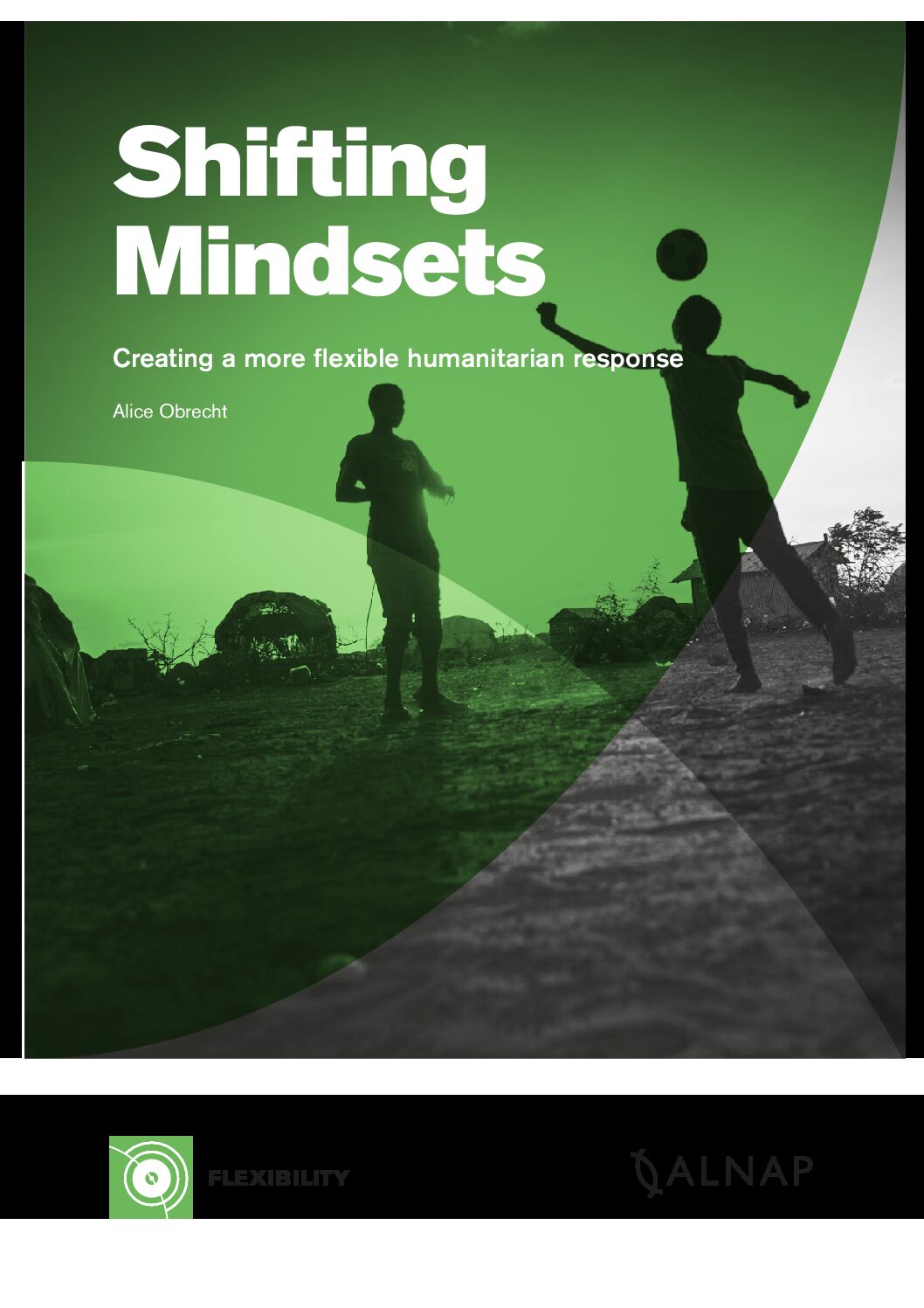

The Child Resilience Alliance (CRA) is a group of senior partners dedicated to children’s protection and well-being in adverse environments. The group, in September 2018, released a 4-section toolkit to support community-led approaches to addressing protection risks affecting children.
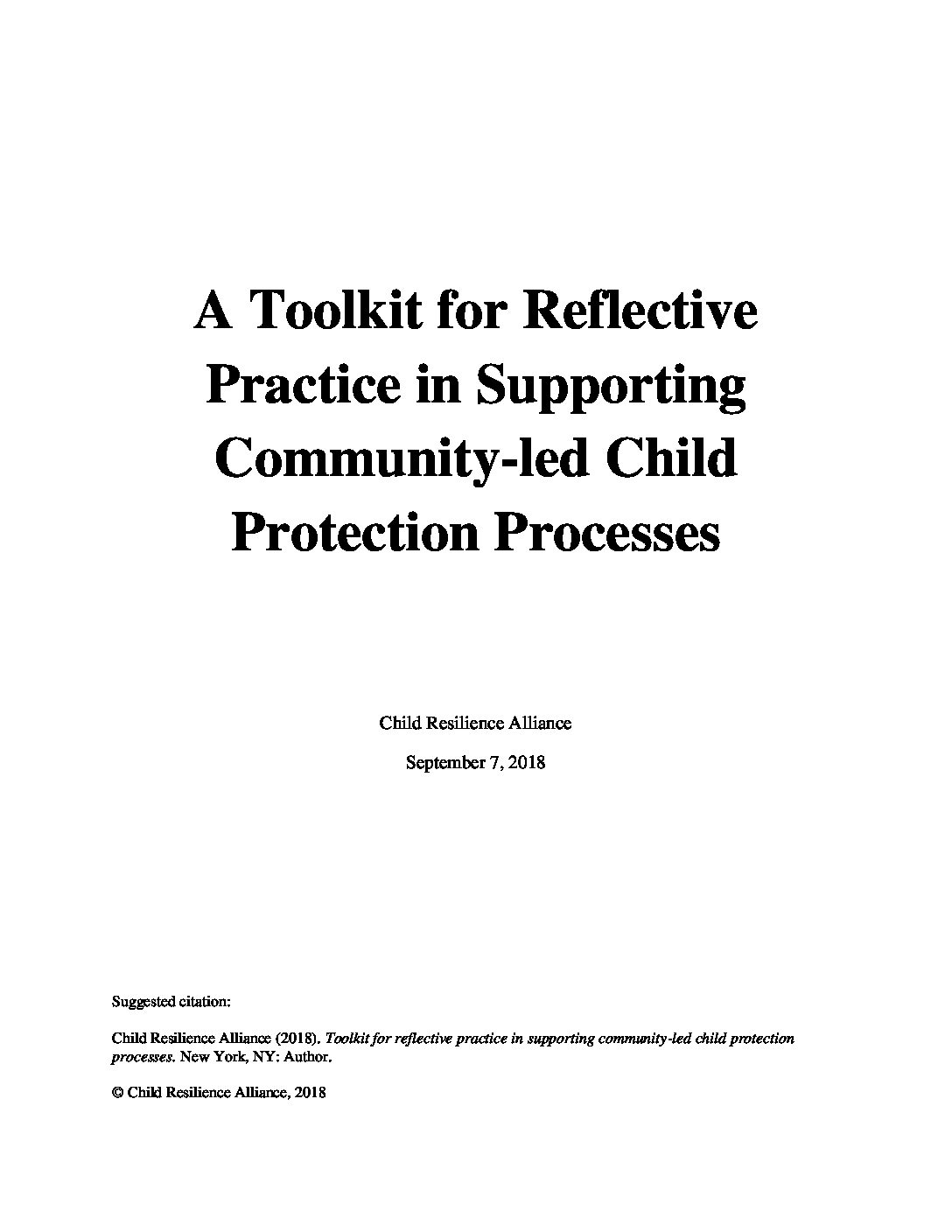
Saferworld has developed an approach that explains the principles underpinning community security interventions, and suggests practical implementation strategies that draw on our work and the work of a select number of agencies.
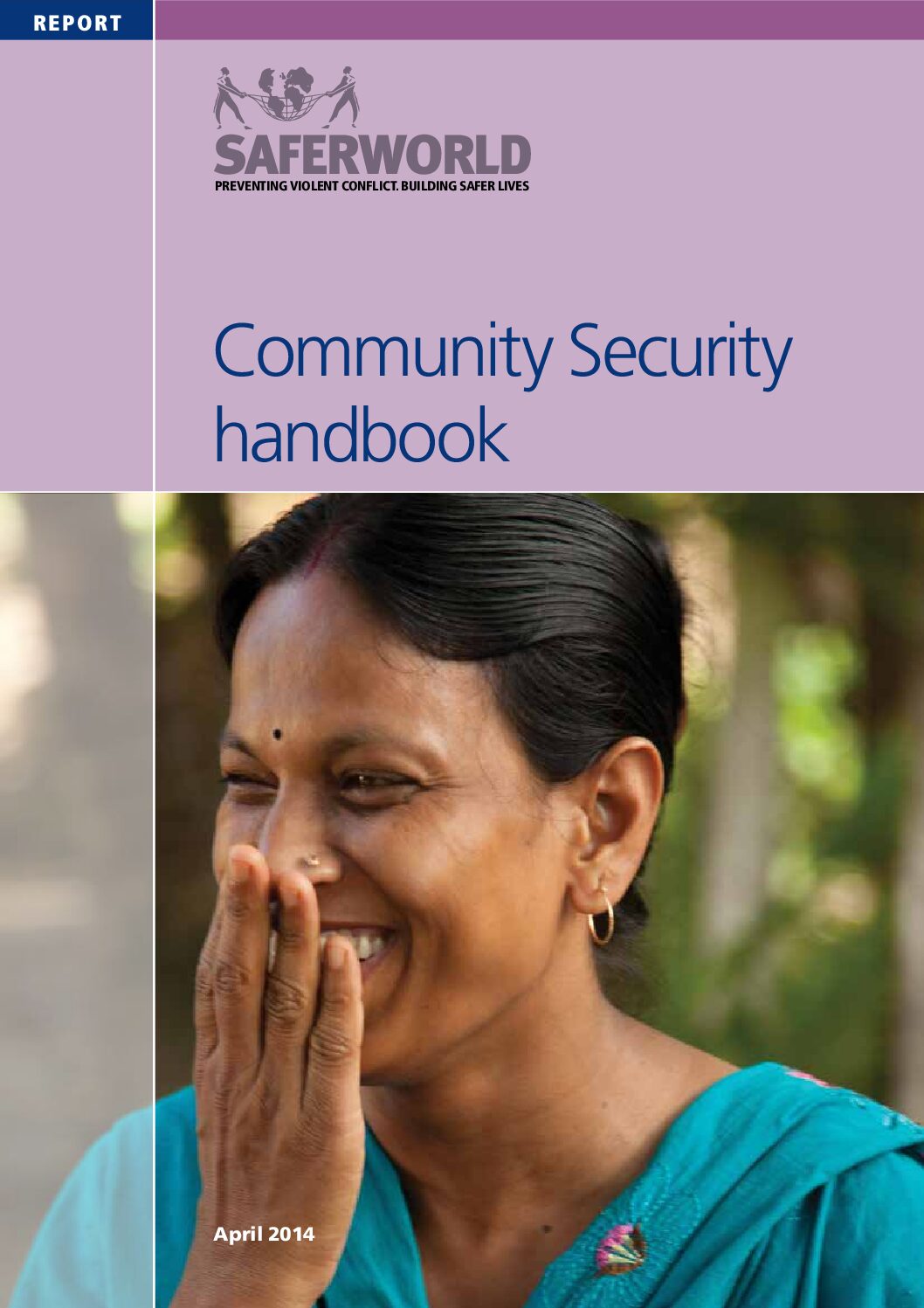
In April 2019, InterAction received generous support from the Swedish International Development Cooperation Agency (Sida) to develop a results-based evaluation framework for the prevention of gender-based violence (GBV). The evaluation framework will be targeted toward humanitarian practitioners in the field, H.Q.-level protection and GBV advisors, and any organization that states GBV prevention as a desired outcome.
"*" indicates required fields